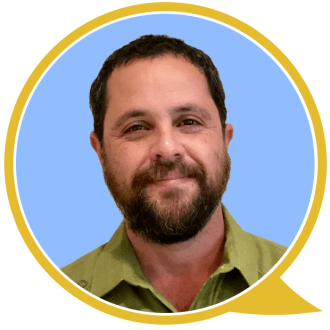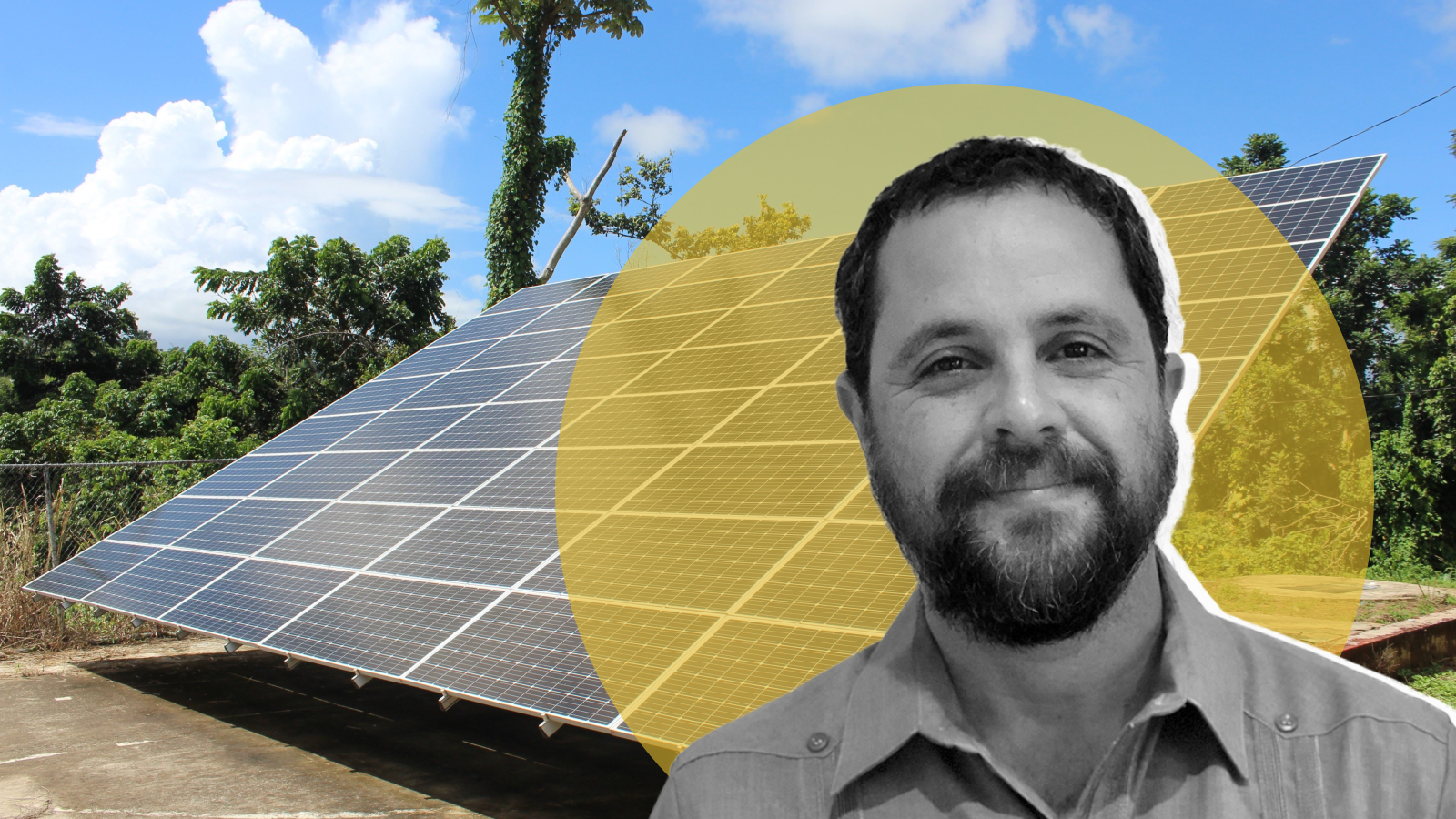Arturo Massol-Deyá believes solar panels will bring power to the people of Puerto Rico — in more ways than one.
Massol-Deyá is associate director of Casa Pueblo, a nonprofit that, since 1991, has installed close to 1,000 solar panels on homes and businesses throughout Adjuntas, a small mountainside town southwest of San Juan. Beyond providing cheap, renewable energy, Massol-Deyá hopes a growing network of microgrids will help Puerto Ricans break their dependence on an unreliable electrical system and a colonial governing structure that has plunged the island into debt, cut social services, and denied residents a voice in federal politics.
The commonwealth depends upon a creaking grid that generates most of its power from fossil fuels and often collapses during natural disasters. Hurricane Maria devastated the island in 2017, leaving 1.5 million residents without electricity. Many were left in the dark for 18 months before power was fully restored, the longest blackout in the nation’s history. In the aftermath of the storm, Massol-Deyá and his team mounted rooftop solar panels on 150 homes. When a 6.4 magnitude earthquake rocked Puerto Rico last January, those households’ lights stayed on; the rest of the island lost power for more than a week.
In October, Casa Pueblo finished its most ambitious project yet. With funding from a charitable foundation, the Adjuntas Pueblo Solar initiative installed 1,000 new solar panels in the town’s central plaza, creating a microgrid that will provide 220 kilowatts of affordable, reliable electricity to 18 stores, restaurants, and warehouses. The businesses pay a governing body, made up of those businesses’ owners, to maintain the grid. The resulting profits go toward financing solar panels for low-income families in Adjuntas and paying local residents to install them.
We talked to Massol-Deyá, a 2019 Grist 50 Fixer, about his latest project, why energy independence means political power, and how Puerto Rico is determining its own future, politicians be damned. His comments have been edited for length and clarity.
A boon to business

Casa Pueblo has been wanting to grow beyond residential projects to truly disrupt the fossil fuel industry in Puerto Rico. The plaza has the highest energy demand in Adjuntas and includes a drug store, furniture store, warehouses, hardware store, a pizza place — businesses that create most of the jobs in the area and provide essential services to the community.
Energy contributes to up to 30 percent of these businesses’ operating costs. With this microgrid, we’re not just providing clean and dependable energy to downtown Adjuntas — we’re helping reduce these small businesses’ monthly bills. These stores were hit hard by Hurricane Maria, then by this year’s earthquake, and now by the pandemic. During the lockdown, small businesses were ordered to shut down, while megastores like Walmart and Walgreens stayed open. It’s been very difficult for these independent, family-owned sellers to compete and stay afloat.
But this project is creating a lot of hope. The business owners are holding strong, knowing that things are going to change for the better. Sellers who used to compete with each other are now working together to manage the energy infrastructure. They value solar not just for its ecological benefits, but for its critical role in the local development of Adjuntas and Puerto Rico, and its help in democratizing our energy infrastructure.
Bold ideas from community members
With projects like Adjuntas Pueblo Solar, it’s important to transfer decision-making power to the community to allow for self-development. That’s why Casa Pueblo helped form the Community Solar Energy Association of Adjuntas, the governing body made up of business owners who both manage and benefit from the microgrid.
When bureaucratic agencies like the Federal Emergency Management Agency swoop in to help with disaster recovery, all they’re worried about are standards and protocols. Their hearts aren’t invested in the issues that communities are facing. But when people who are impacted deal with the situation, they share a sense of urgency. They know all the ways their neighbors are suffering. They try to do as much as possible with limited resources.
When solutions draw from the knowledge and experience of community members, I think they work way better than those that come from a top-down approach. It’s very difficult to define a single solution that will work everywhere. And even if you have a great idea and the best technology, the local culture can be resistant to the change. The businesses involved in Adjuntas Pueblo Solar were skeptical about solar energy at first, but Casa Pueblo has spent years building relationships in the area and was able to earn the owners’ trust and help them see the economic benefits. That’s why community-driven initiatives, aided by local organizations, work better than top-down approaches.
Redistributing power
Projects like Adjuntas Pueblo Solar can help Puerto Rico break its fossil fuel dependency. Currently, most of the island’s energy comes from coal, gas, and oil, which only fuel global warming and make the storms we experience worse. And the island is paying millions a year for that centralized infrastructure, which is poorly maintained — as the blackouts from Hurricane Maria and the earthquake show. If we can create clean energy using the resources that we have within our reach, instead of those outside of our economy, that money can be reinvested in Puerto Rico as a means to build wealth in communities and deal with its socio-economic crisis.
Community-led clean energy projects can also help Puerto Ricans decolonize the island on our own terms. Puerto Rico is a colonial state, meaning we cannot vote for the United States president, and we don’t have representation in Congress. We cannot make decisions for the well-being of our people. But at the community level, self-determination can be exercised. If we get organized, and if we build our knowledge and skills and wealth through projects like Adjuntas Pueblo Solar, we can break the cycle of dependency not just on fossil fuels, but also on the federal and local governments that have failed us.



